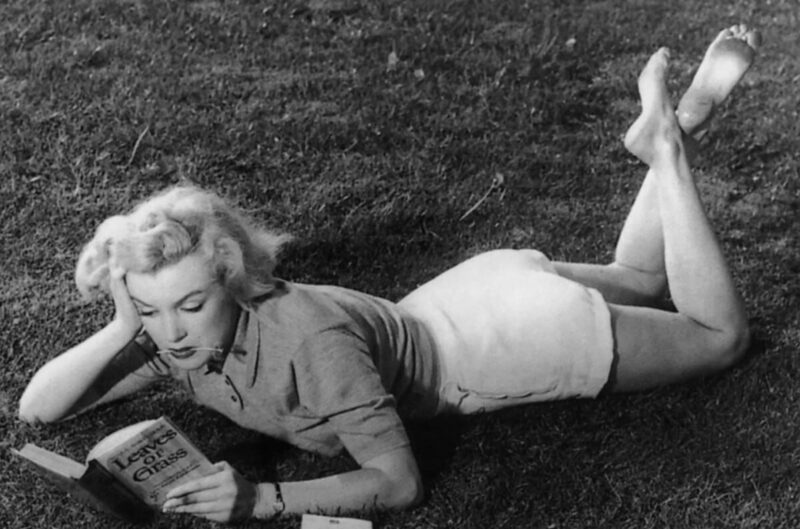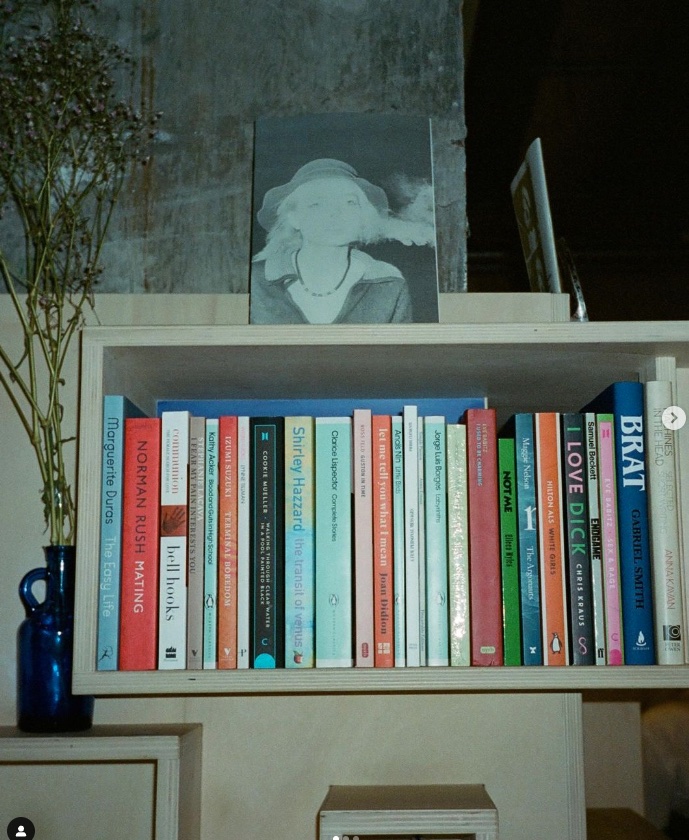
What's the deal with Book Girl Summer?
Earlier this month, the fashion house Miu Miu staged a marketing event at an unlikely catwalk: Casa Magazines. This was part and parcel of a recurring pop-up called ‘Summer Reads,’ at which fans of the brand can line up to receive a Miu Miu-approved book (or in their words: piece of “feminist literature”) and a snack. ‘Summer Reads’ is slated to hit eight countries this season. And handpicked titles included Sibilla Aleramo’s A Woman, Alba De Céspedes’s Forbidden Notebook and Jane Austen’s Persuasion.
It’s not exactly new to package books as accessories. Or more specifically, as natural companions to a certain well-heeled, fashionable lifestyle. The evidence abounds. Walk into an Aesop and The Paris Review will greet you. And who can forget last January’s literati event of the season—a symposium co-sponsored by the designer Rachel Comey and The New York Review of Books?
Speaking of this event, the novelist Samantha Yadron told The New York Times, “I think these days literature has become an aesthetic in itself; you can develop an aesthetic based on the idea that you enjoy reading.”
On the one hand, this kind of aesthetic cross-branding can feel icky because it requires judging a book by its cover. (And as Marie Solis has reported in the Times—the superficial alliance of books and fashion is “a courtship in which each party gets to extract a bit of social capital from the other.”) But I’ve shaken my fist at the sky on this subject before.
It’s also true that we’ve had a cultural reverence for the bookish beauty since at least this iconic Eve Arnold photoshoot, or this film. But why should this be?
What makes a book an item of luxury?
*
David Owen, co-founder of Idea Books, has a hunch. Speaking in Vogue about the Miu-Miu pop-up, Owen suggested that books have a natural association with leisure because reading a whole-ass novel (in this economy?!) requires that most sacred commodity of them all: time. “When a fashion brand aligns with literature, they are making an allusion to quality and permanence and, in many ways, delayed gratification,” he said.
Instagram lends abundant evidence to this theory. We need look no further than Marc Jacobs’ Instagram for an example of the book moonlighting as a symbol for the glam life. In his regular ‘reading hour’ entry, the designer posts selfies staged around his home in which he’s in thrall to eye-catching hardcovers. Dostoevsky, Hilton Als, James Baldwin, and Cynthia Carr have all made recent appearances in the lovelier corners of Jacobs’ home, often above the caption “#peacefulSunday.”
We can also note the novel’s recent success as prop among the pore-less influencer set. But although it’s easy, for some of us Waldorfs or Statlers, to judge the phenomenon that is the artfully framed #amreading shot (witness the bikini body, book in hand), this has been a wildly successful marketing tool.
Partially thanks to the glamorizing forces on BookTok, Gen Z is reading more than ever.
 The shelf Kaia Gerber co-curated for Reference Point. Via Instagram.
The shelf Kaia Gerber co-curated for Reference Point. Via Instagram.
Another example: the supermodel Kaia Gerber’s pandemic-spawned book club, Library Science. Gerber’s project beat Miu-Miu to the posh public-facing collaboration, via curator collabs with trendy London bars and Palm Beach hotels. But the club has also spotlit dozens of novels and nightstand piles—often to the benefit of books off the beaten-path.
Though her titles cater to a certain taste (there’s something to triangulate about what makes a book “chic”), it’s hard to be other than endeared by a project that brings acts as varied as Izumi Suzuki, Marie NDiaye, and the playwright Will Arbery to more readers. And it’s worth noting that in Gerber’s case, more is truly…more. She has ten million followers.
*
So maybe it’s a net good, if a book is the new Birkin. Especially if we consider the most romantic binding glue between fashion and fiction: a love of beauty. Last year the author Raven Leilani connected her sense of style to the her writing practice, in a mutual ode to the designer Ulla Johnson. In this kind of light, the book-as-accessory can be a loving assertion of personal style.
Meanwhile, other writers note that the creative act itself never fails to resist glamorization. When asked at the Comey event what she wore to the desk each day, the author Sloane Crosley pulled no punches: “Whoever says anything other than ‘bathrobe’ is a filthy liar.”
Image via
Brittany Allen
Brittany K. Allen is a writer and actor living in Brooklyn.



















